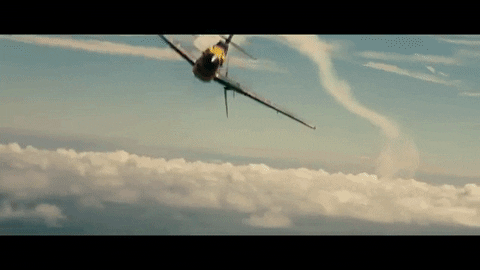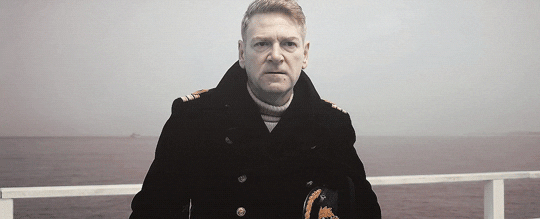The story of historical Dunkirk might not be completely known to those who didn’t avidly pay attention to World War 2 history in school. The events of this massive retreat from Nazi occupied France tend to be overlooked by those not completely versed in World War 2 events or to the casual war movie viewer. When you think about it, both critically acclaimed and lesser known movies about this era tend to take place post 1942 when the United States had all but already entered the war: Saving Private Ryan, Fury, Battle of the Bulge, Das Boot, and the list goes on.
But that is what made going into this movie so special. If any of these movies have something in common it’s a mentality centered around the fact that we won war, good triumphed against evil, and the world was saved. Christopher Nolan zoomed past this common trope and decided to barrage us with a heavy defeat; a victory in terms of feats of human resilience in the face of loss and the unwavering spirit of survival, but a devastating and dark time during the war.
During the period of the war the movie is adapting, Nazi Germany had a lighting paced momentum going as they ravaged through Western Europe. This left some 400,000 British, French, and Dutch soldiers trapped in a coast town in northern France not far from where the Dutch retreated from Belgium. While the armies did set a perimeter to keep their lines safe, this didn’t stop the German Luftwaffe from dropping bombs on those waiting to be evacuated back to England.
From May 26th to June 4th 1940, the men stuck here held on to what little they could before the Nazi’s rolled past their perimeters. British Naval ships being targeted by Nazi aircraft and shallow waters not optimal for large-hulled vessels left a huge hole was left that average civilians filled. They to the beach with yachts, fishing boats, and the like to rescue whomever they could.

It’s difficult to call this a war movie exclusively. Sure, it takes place during a famous battle and there are fight sequences, mostly dog fights, but in its own right Dunkirk is a tale of survival leaning more towards a historical drama than anything else. Nolan does an excellent job of getting this point across with his focus on the more human aspects of this film, giving us an exclusive look into the situations of three varied groups of characters in the film.
This was probably one of my favorite things about this film. The variety let us see what fear and desperation looked like with Tommy and Gibson trying whatever they can to get on a ship out of France. Tom Hardy and Jack Lowden took us through a thrill ride of albeit small, yet very exciting dog fights as they fought with little resources to keep the Germans off of the seas. Mark Rylance and Cillian Murphy give us the true meaning behind what makes a brave man and how he can break. Even with his smaller role Kenneth Branagh manages to makes us feel as responsible as he must.
While on the subject of portraying emotion, Nolan opted to not have much of a script for this film. It isn’t silent by any means, but at its core the real show stealer is how well we are put on the edge of our seats and on the verge of emotional goosebumps without having to rely on sometimes cliché and poetry-like scripts. The film instead relies on actions, expression, and lots of great sound works to replace tear jerking monologues.
Fear was completely apparent in this film, from the screech of a descending German airplane ready to drop bombs at large groups of men on the beaches to the look of pure terror on Cillian Murphy’s shell shocked face. Moments like these take hold of our minds to the point that we almost know what it must have felt like. On the other hand, moments of inspiration and heroism feature heavy towards the end, as might one expect after being dragged through an hour and a half of dread and helplessness.

Another high point was the cinematography. Nolan has always been known for the camera work employed in his films and this one cemented his place in making some of the most visually beautiful movies I’ve ever seen. Unlike most modern war movies that tend to focus on the brutality and destruction of war, Dunkirk instead gives us a wider picture. From the camera work in the flight sequences to the surreal feeling of awe at the sight of so many small boats crossing the English Channel. This film is emotion incarnate, prevalent in all the many ways it proves it to us without using words.
I had only one real problem with the film, and it’s more of a nitpick than an actual criticism. Early on, when we are introduced to the various characters, each is given a different timeline. For some they begin days before the actual evacuation, for others it was hours. Throughout the movie whenever the point of view changes from one storyline to another, it’s kind of hard to keep track of when exactly in time they are, even with being given the information at the start. This results in seeing a lot of the events multiple times but from another perspective. Like I said though, this isn’t real a deal breaker. In fact, I view it mostly as Nolan trying to put his own mark on the film, even if it is confusing.
All that said, Dunkirk is quite the achievement in story, raw acting talent, and excellent use of sound and visuals to create the fear, desperation, and inspiration known well in war movies but done in a whole different light. I firmly believe this genre breaking film will definitely stand up on its own as a classic. It’s not so long as to deter from its quality, and its PG-13 rating offers up a film the whole family can enjoy and hopefully learn something from.
Final Score: 9/10

